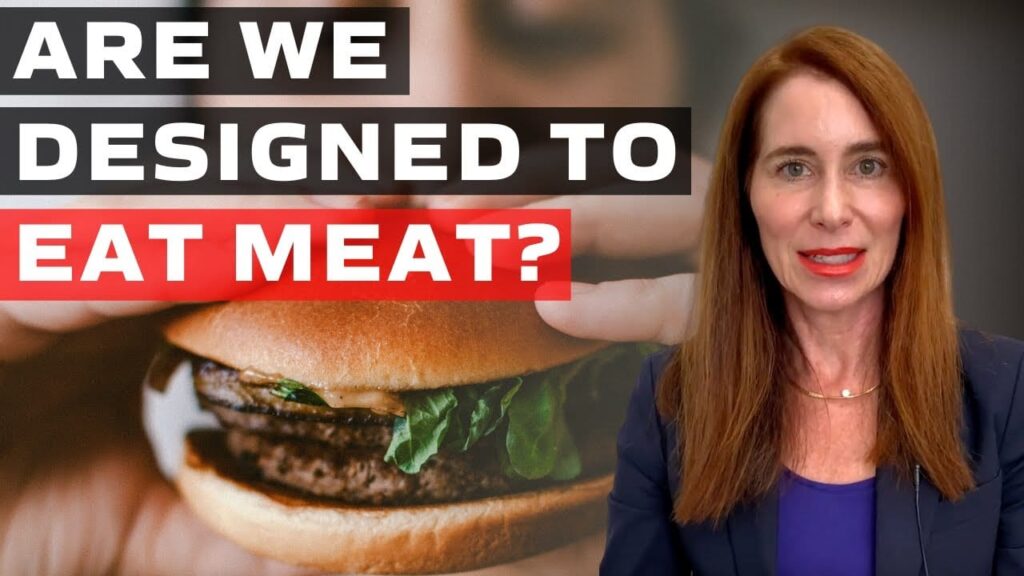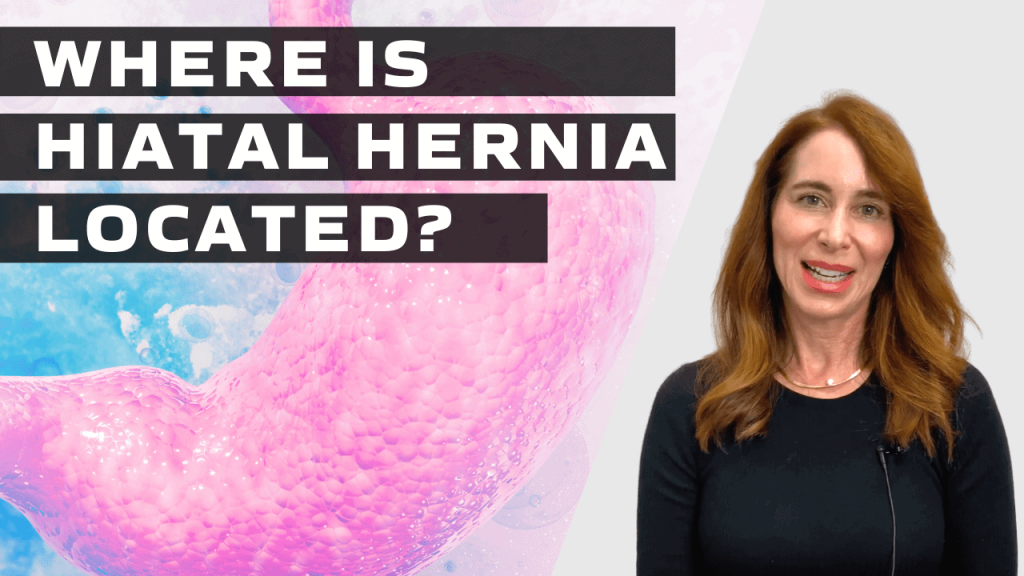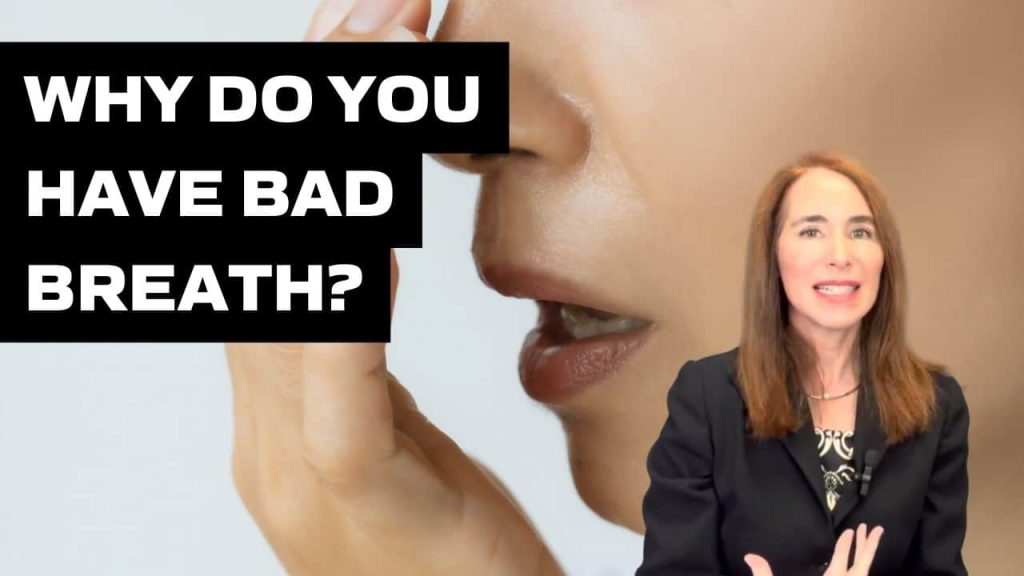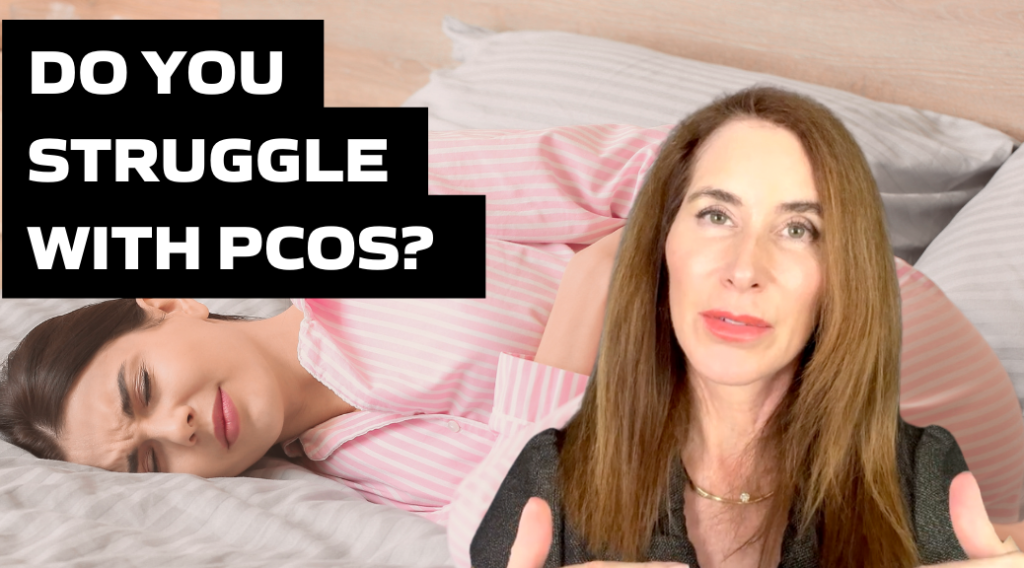Good Mood Food vs. Bad Mood Food
Mood Food: what we put in our mouth affects our mood
What you will learn about
In this video, Dr. Vikki discusses the connection between food and mood. She explains that certain foods, such as omega fatty acids found in cold water fish, can have a positive impact on mood by reducing inflammation in the body. However, due to concerns about mercury contamination in fish, she recommends supplementing with clean omega-3 supplements.
Dr. Vikki also emphasizes the importance of consuming healthy fats, such as avocados and nuts, which can stabilize blood sugar and promote satiety. She discusses the role of probiotics in gut health and mood stability, noting that while probiotics can be beneficial, some individuals may experience negative effects and may benefit from consuming prebiotics found in fruits, vegetables, and legumes.
On the other hand, Dr. Vikki advises against consuming sugar, refined and processed foods, as they can negatively impact mood and feed harmful bacteria. Finally, she highlights the benefits of exercise and proper hydration in improving mood.
Transcript of the video
By Dr. Vikki Petersen
Mood food. What do we mean by that? We’re talking about how what we put in our mouths affects our mood. Certainly we’ve seen this to excess. If you’ve ever indulged in a lot of sugar, or been around a child who has indulged in a lot of sugar and they’re running around and then they sometimes get cranky or very cranky, and you’re sorry that you gave them that huge ice cream sundae — or whatever it was.
So we know about the excess, but do we know about the subtleties of it all and how does it work?
I want to start with what’s good for mood and stabilizing for mood, because we can all agree we love it when our brains are working well, we don’t have any brain fog, our mood is stable, we’re happy.
Good mood food
 These are things that are quite influenced by what we eat, and as Americans, that’s something we’re really not told about — we’re more told “You’re hungry, drive into X-Y-Z fast food institution, and just get whatever“. So, let’s start with the good stuff.
These are things that are quite influenced by what we eat, and as Americans, that’s something we’re really not told about — we’re more told “You’re hungry, drive into X-Y-Z fast food institution, and just get whatever“. So, let’s start with the good stuff.
You’ve maybe heard of “omega fatty acids”. They’re highly associated with cold-water fish like salmon. They are known to be anti-inflammatory, so they tend to quench or gobble up inflammation in the body. They are particularly associated with our brain and therefore they affect hormones. Getting enough omega fatty acids is very important. A couple of grams a day is good.
The problem is a lot of Americans don’t like fish. And sometimes it’s hard to find fish that’s pure enough and doesn’t have heavy metals. Fish unfortunately has a lot of mercury with it. Mercury is a neurotoxin, so that’s not going to do anything good for your mood.
Supplementing with omega-3s
So I do prefer to supplement when it comes to omega-3s and getting a really good clean supplement where you know they’ve checked and there’s no mercury that has tainted the oil and you’re just getting that good solid omega-3s because the American diet tends to be way too high in omega-6s, which are quite pro-inflammatory, the contrary of omega-3s.
Omega-6s are very easily gotten. Omega-3s, you have to work for. And again, I think supplementation is a really good idea.
Healthy fats
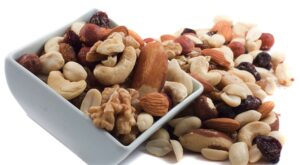 Additionally to omega-3s, eat good healthy fats. Things like avocado, macadamia nuts, other nuts and seeds… These are the fats I prefer. There are also nut butters, they are fun. These fats are very stabilizing to your blood sugar. When you ingest good healthy fat, you feel very satiated so you don’t need a ton of it.
Additionally to omega-3s, eat good healthy fats. Things like avocado, macadamia nuts, other nuts and seeds… These are the fats I prefer. There are also nut butters, they are fun. These fats are very stabilizing to your blood sugar. When you ingest good healthy fat, you feel very satiated so you don’t need a ton of it.
I know, people hear nuts and go “high calorie!“. They are high in calorie, but in moderation they are very satisfying. So you’re not craving those simple carbohydrates and they’re very good for your hormone balance, and very good for brain health… and thereby, for mood stability.
Probiotics
You hear a lot about probiotics and the bacteria in your gut. You can supplement with probiotics; there’s certainly nothing wrong with that. Here at Root Cause Medical Clinic, when we do certain laboratory tests, we find what imbalances are occurring within the gut of our patients and certain probiotics are very helpful for that. There are some very pointed probiotics [well suited] for certain conditions like ulcerative colitis and different diagnoses.
General probiotics are fine, I don’t have anything to complain about with them… unless you take them and you feel worse. Usually, that means that you have bacteria too high up in your gut and instead of low down in the gut where they should be. Then these probiotics are feeding and aggravating those bacteria that have migrated too high up in your gut.
So, if you’re somebody who experiments with a probiotic and you feel worse, you are not alone. It does actually mean something. It doesn’t mean you can never have one, but what should you do right away? Because obviously you have to stop that probiotic because it’s not suiting you.
Prebiotics
What you can do is get prebiotics. These are things in our food that feed the probiotics in our gut and that’s where healthy fresh fruits and vegetables come in along with beans and legumes, things like lentils, etc., that are very rich in fiber and the fiber found in fresh fruits and vegetables.
You want 7 to 9 servings each day combined along with beans. Beans and legumes are difficult to digest — in a good way. They’re called resistant starches and they don’t skyrocket your blood sugar. Instead, the body has to work to digest them, which again is a good thing. And then they get low down in your gut and they feed the good bacteria.
So when we’re talking about mood, what we see is that people who are anxious and depressed and have moody type symptoms in a negative way, literally have different bacteria in their gut than people who don’t have these problems.
And so we want to, of course, feed the bacteria that are going to keep our mood balanced and keep our hormones balanced, and not keep feeding these guys that are pro-inflammatory and creating the bad mood, the depression, anxiety, etc.
That might sound a little “far out”, but it’s been very well proven. What we want to do is have a diet that feeds the good guys and starves the bad guys. We don’t want to feed the bad guys that create a lot of these irritable-type symptoms.
OK, we’ve kind of gone through the good food. Now what I want to do, is step over to the bad side.
Bad mood food
 On that bad side, we have sugar and bad bacteria, cancer cells, viruses, they all love sugar. That’s their preferred source of fuel, so we don’t want to feed them. Also refined foods, processed foods… All these “non-foods” that we as Americans are very exposed to, are unfortunately feeding the wrong bacteria.
On that bad side, we have sugar and bad bacteria, cancer cells, viruses, they all love sugar. That’s their preferred source of fuel, so we don’t want to feed them. Also refined foods, processed foods… All these “non-foods” that we as Americans are very exposed to, are unfortunately feeding the wrong bacteria.
And not only are they engineered… but food engineers engineer our food to make it highly addictive. That was proven way back when, when “Supersize Me“, the documentary, came out about the food at McDonald’s.
These food engineers have learned (and it’s been perpetuated; of course, if you’re somebody who’s selling something to people, you want them to continue to want it), so there are certain things in these products that I would call “food” between quotes because they are not real food, which cause you to crave. They cause your brain to crave. They act like opiates in the brain so you get addicted. It’s really an unfortunate occurrence of these processed, not real foods. And they definitely can affect your mood in a very negative way.
Those are the bad guys.
Other helpers
Then, outside of mood food, something very helpful for mood is exercise. For you and the whole family, your kids, getting into good habit of exercise really lifts mood. It raises your endorphins, it raises your serotonin. This is very well-documented. You can start with 20 minutes a day. You can get up to 40 minutes several times a week, as many times a week as you can would be great.
Anything you like to do, we can refine it later. But any kind of movement you enjoy doing over a sustained period of time, even if it’s a combination of things, that’s what I want you to do.
Hydration
 And then, hydrate: you need enough water every day, purified water, 64 ounces, eight glasses throughout the day to help get rid of toxins, get rid of bad chemicals that have come your way. You’ll see a difference. You honestly will. Give it two, three weeks, you will see a difference.
And then, hydrate: you need enough water every day, purified water, 64 ounces, eight glasses throughout the day to help get rid of toxins, get rid of bad chemicals that have come your way. You’ll see a difference. You honestly will. Give it two, three weeks, you will see a difference.
Now, if you’ve had a situation with mood imbalance that’s been going on for a while, this isn’t enough. I understand this is not THE answer for everyone. It’s just a really good start.
I wanted to give you some good “food for thought” as far as mood food goes. I hope this was helpful.
Genetic testing and nutrition programs at Root Cause Medical Clinic
Under the control of a team of doctors, nutritionists and registered dietitians, Root Cause Medical Clinic offers genetic testing to find out what diet is specifically adapted to your genes. Once your genetic testing is evaluated, the nutritionist team works on designing a diet that will help you switch out of bad foods into the good foods your body needs. This is key to recovering your health. We invite you to contact us to discuss these options.
Additional resources
If you haven’t seen Supersize Me, you are missing out on great educational fun. Here is their Wiki page.
Some interesting research on mood food, the CNS and obesity
Ask a Doctor
Have a health concern you'd like to speak with a doctor about? Or just want clarity on a subject? Ask Us!

